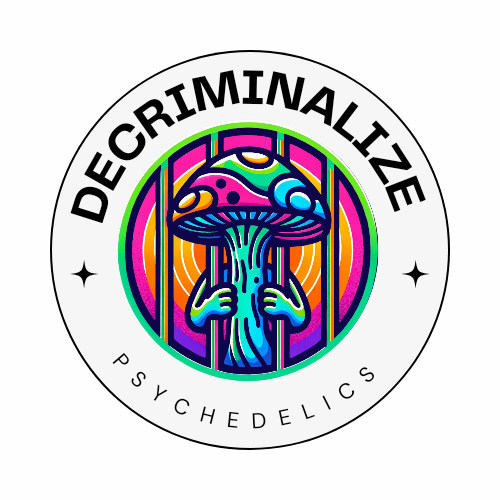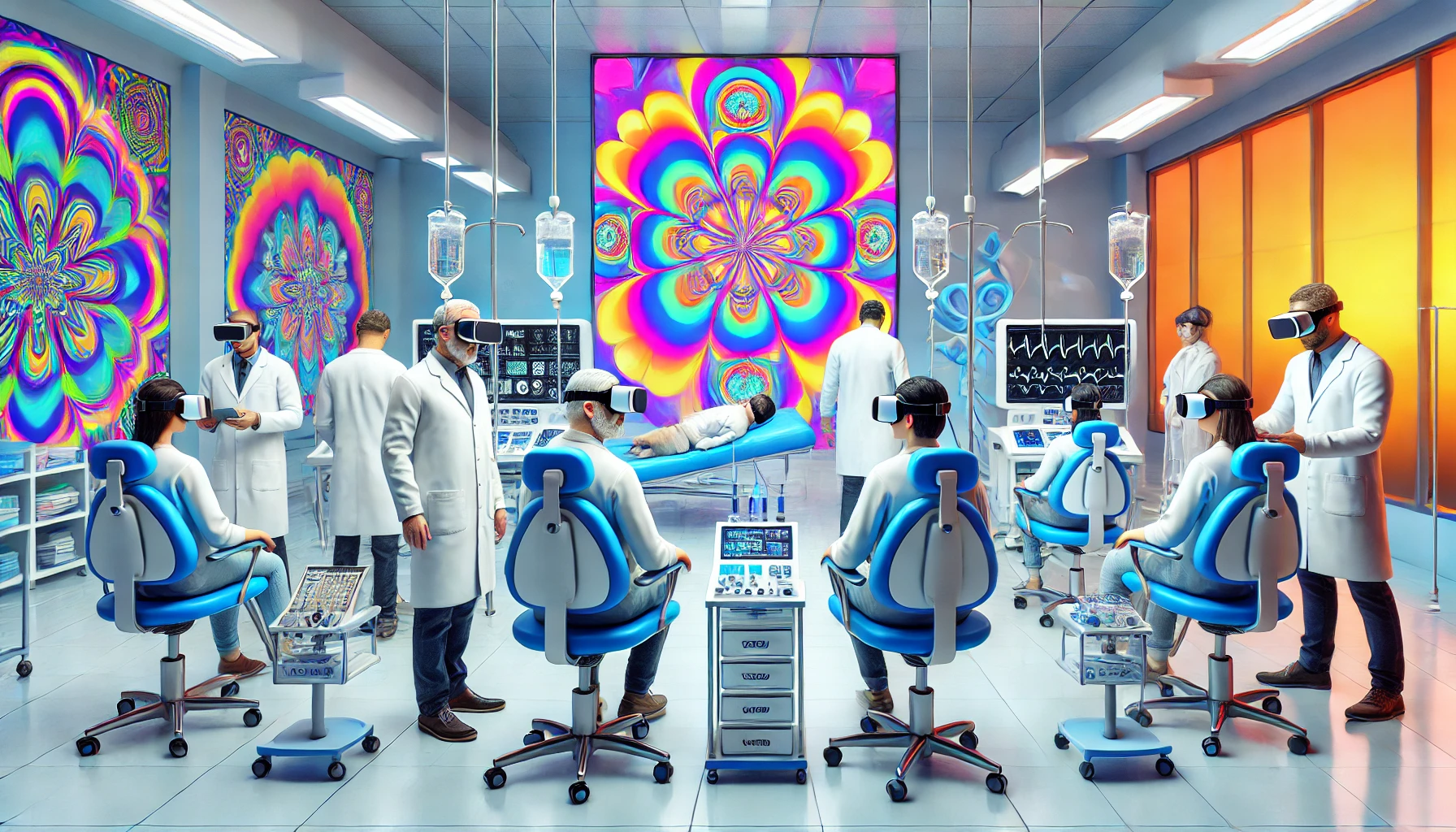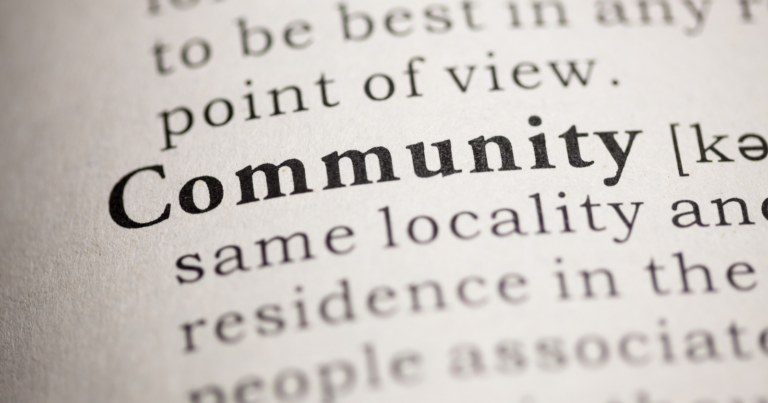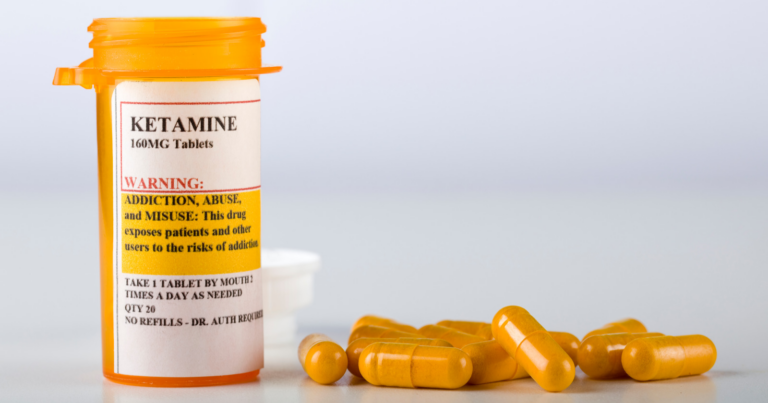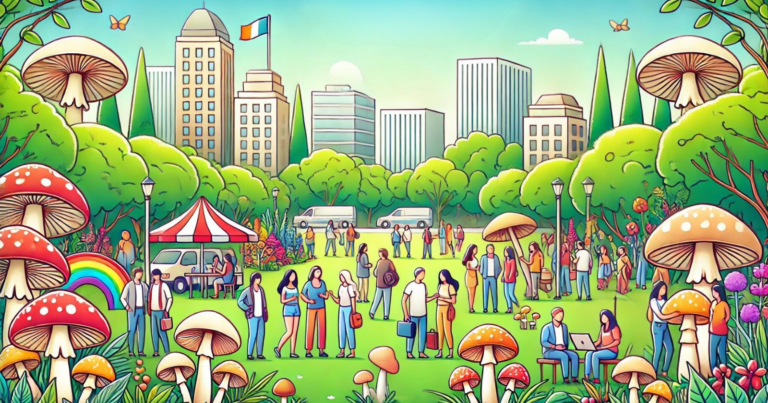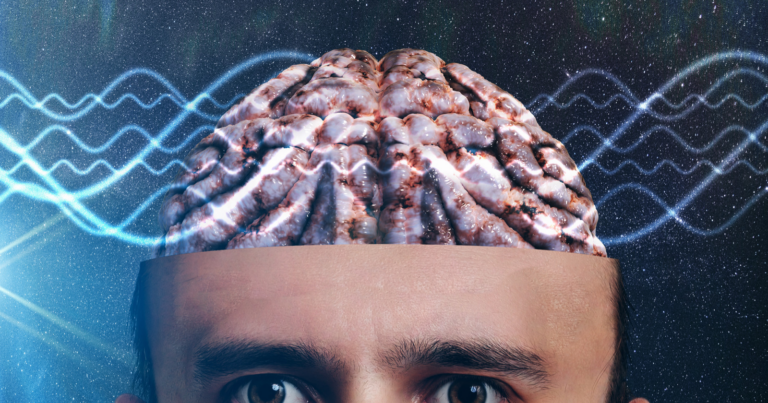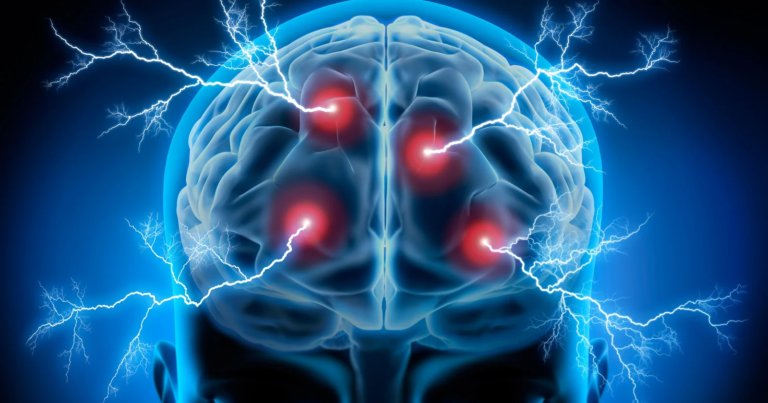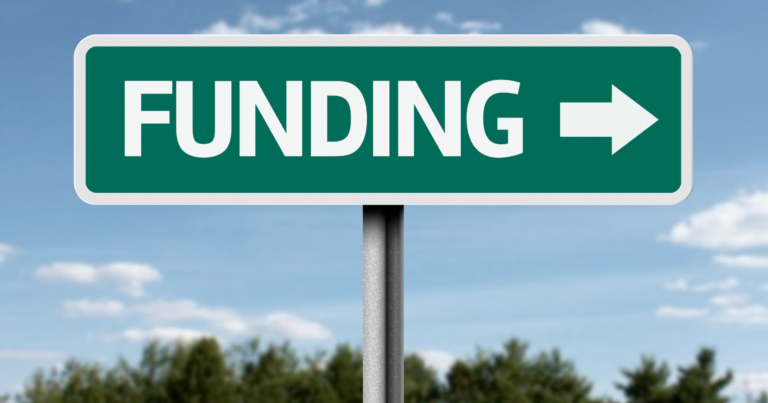In 2024, clinical trials are taking a groundbreaking turn – with psychedelics at the forefront of this revolution.
Seven pivotal studies are reshaping our understanding of these substances and their therapeutic potential.
Conducted by leading researchers and institutions, these trials demonstrate the transformative effects of psychedelics on mental health.
Here, we explore each of these impactful studies, their key findings, and implications for the future of holistic health care.
1) Revolutionizing Depression Treatment
The trial that I find most compelling delves into the transformative potential of psychedelics for treating depression.
Johns Hopkins University leads this groundbreaking study, exploring how psilocybin – the active ingredient in “magic mushrooms” – could revolutionize depression treatment.
The focus of the trail is on treatment-resistant depression, a form of the illness that does not respond to traditional therapies. Researchers are investigating whether psilocybin can provide long-lasting relief from depressive symptoms.
Early findings suggest that a single dose of psilocybin, combined with psychotherapy, can induce rapid and sustained antidepressant effects. These effects could last up to four weeks, surpassing the typical duration of standard antidepressant medications.
This trial is also exploring the substance’s safety profile, which is crucial for its eventual mainstream acceptance. Preliminary results point towards a good safety profile with minimal side effects.
The study holds significant promise for millions suffering from depression worldwide.
2) MDMA in Post Traumatic Stress Disorder (PTSD)
Spearheaded by the Multidisciplinary Association for Psychedelic Studies (MAPS), this study focuses on the potential of MDMA – commonly known as ecstasy – in treating Post Traumatic Stress Disorder (PTSD).
PTSD poses a significant challenge to mental health professionals due to its complex symptomatology and often resistant nature. This trial aims to address these complexities by combining MDMA with psychotherapy.
Intriguingly enough, MDMA is not a traditional psychedelic.
It doesn’t induce hallucinations or a distorted sense of time. Instead, it enhances feelings of trust and empathy, creating a safe space for the processing of traumatic memories.
The trial’s methodology involves administering controlled doses of MDMA during psychotherapy sessions.
The goal?
To mitigate fear and defensiveness while promoting insight and empathy.
Preliminary results from Phase 2 trials have been promising. A significant number of participants reported substantial reductions in PTSD symptoms after just a few sessions.
What’s next then? As we move into 2024, Phase 3 trials are underway, bringing us a step closer to potentially having MDMA-assisted therapy as a legally approved treatment for PTSD.
3) Psilocybin for Smoking Cessation
Isn’t it intriguing to consider that a compound found in psychedelic mushrooms might help people quit smoking?
Well, that’s exactly what the next trailblazing clinical trial, initiated by Johns Hopkins University, aims to explore.
Smoking, as we know, is notoriously hard to quit.
Traditional therapies often yield limited success, with many relapsing within a year.
Here’s where the unexpected comes in:
This study is investigating whether psilocybin, in conjunction with cognitive behavioral therapy (CBT), can help smokers kick the habit for good.
Unlike conventional treatments that focus on nicotine replacement or blocking its effects, this approach takes a radically different route. It aims to effect a more profound change by altering the smoker’s mindset and relationship with tobacco.
Preliminary findings are nothing short of impressive. A majority of participants remained abstinent after six months, a success rate far exceeding traditional smoking cessation methods.
It’s fascinating how these trials are pushing the boundaries of traditional medicine.
4) LSD Microdosing for Cognitive Enhancement
Have you ever wondered about the potential of tiny doses of psychedelics to enhance cognitive abilities?
The fourth clinical trial on our list, led by Imperial College London, delves into this intriguing concept. The study focuses on the effects of LSD microdosing on various aspects of cognition and mental health.
Interestingly, microdosing involves taking sub-perceptual doses of a psychedelic substance. In this case, LSD. We’re talking about doses so small that they don’t induce any significant changes in perception or consciousness.
The study aims to determine whether these minuscule LSD doses can improve creativity, problem-solving skills, and overall cognitive performance. It also investigates potential benefits for mood disorders and anxiety.
Early findings hint at some positive effects.
Yet researchers call for caution until more robust data from double-blind placebo-controlled studies are available.
What’s more fascinating is the potential paradigm shift this could bring about in our approach to cognitive enhancement and mental health treatment.
5) Ayahuasca for Substance Use Disorders
Ayahuasca is a traditional Amazonian psychedelic brew.
The Centre for Addiction and Mental Health in Canada leads this trial, which investigates Ayahuasca’s potential in treating substance use disorders.
Substance use disorders pose immense challenges, both at individual and societal levels. Rehabilitation and recovery often involve a complex interplay of physical, psychological, and emotional healing.
Ayahuasca, with its potent combination of DMT and MAO inhibitors, provides a unique psychedelic experience. It has been used for centuries in traditional healing ceremonies.
The study aims to understand if Ayahuasca can offer therapeutic benefits in:
- Reducing cravings
- Alleviating withdrawal symptoms
- Promoting long-term abstinence
Simply put, this trial offers an exciting exploration into harnessing ancient wisdom for modern therapeutic purposes. And that wraps up our journey through the top five key clinical trials changing psychedelics in 2024.
6) Ketamine for Major Depressive Disorder
Ketamine is a substance initially known for its anesthetic properties.
This trial, conducted by the National Institute of Mental Health, investigates ketamine’s potential in treating Major Depressive Disorder (MDD).
As we know, MDD is a severe mental health condition that causes persistent feelings of sadness and loss of interest in daily activities. The disorder affects millions worldwide and can be life-threatening if not adequately managed.
What makes this trial particularly interesting for me is the rapid antidepressant effects observed with ketamine. Traditional antidepressants can take weeks to start working, but ketamine shows effects within hours to days.
This swift action can be a game-changer for individuals in severe distress or those who have not responded to conventional treatments. It gives us hope for faster, more effective interventions in managing this debilitating disorder.
7) Ibogaine for Opioid Addiction
Imagine being trapped in the terrifying cycle of opioid addiction, desperately seeking a way out but finding every attempt to quit met with painful withdrawal symptoms and unbearable cravings.
This is the reality for many struggling with opioid addiction.
But hope may be on the horizon, thanks to a clinical trial investigating the potential of Ibogaine.
For our seventh trial, we turn our attention to the Ibogaine Clinic in Mexico. They’re researching the use of Ibogaine – a naturally occurring psychoactive substance found in plants of the Apocynaceae family – for opioid addiction treatment.
What makes this trial stand out for me is Ibogaine’s unique ability to alleviate withdrawal symptoms and reduce drug cravings. It’s not just about temporary relief either; it seems to promote long-term sobriety.
Early reports from the clinic suggest that a significant number of patients remain abstinent even months after treatment. Such results hint at a promising new approach to tackling the opioid crisis.
Psychedelic-Assisted Therapy: The Future
The potential of psychedelic-assisted therapy is evident across these trials.
This innovative approach combines the use of psychedelics with psychotherapy to address various mental health conditions.
One trial that particularly stands out is being conducted by the Usona Institute.
They’re investigating how psychedelic-assisted therapy could help individuals with life-threatening cancer deal with existential distress.
The therapy involves a carefully controlled and therapeutic use of psilocybin, aiming to help patients confront their fears and anxieties about death and find a sense of peace.
Early results from this trial are encouraging. Many participants report reduced anxiety, improved mood, and a better quality of life following therapy.
This trial represents the future of psychedelics in health care – a future where these substances are recognized not as recreational drugs, but as powerful tools for healing and personal growth.
What Does This Mean for the Future of Mental Health?
These groundbreaking clinical trials hint at a paradigm shift in mental health care. Psychedelics, once dismissed and stigmatized, are now emerging as potential game-changers in treating a wide array of mental health conditions.
- Depression
- PTSD
- Substance use disorders
- Existential distress in terminal illness
The trials we’ve explored offer a glimpse into the future – a future where mental health care is more personalized, holistic, and effective. They highlight the importance of open-mindedness in scientific exploration and the potential for growth when we step outside conventional frameworks.
So, what’s next on your learning journey?
Perhaps it’s delving deeper into one of these trials, or exploring other pioneering research in the field. Or maybe it’s reflecting on how these developments could influence your approach to mental health and wellness.
In the end, it’s about fostering a mindset that values curiosity, embraces growth, and remains open to new possibilities.
